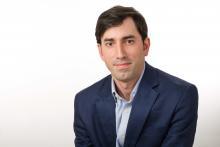Extreme Altruism
PRINCETON – More than 40 years ago, in an essay entitled “Famine, Affluence, and Morality,” I invited readers to imagine that they are walking past a shallow pond when they see a small child who has fallen in and seems to be drowning. You could easily rescue the child, but your expensive new shoes would be ruined. Would it be wrong to ignore the child and walk on?
When I ask audiences for a show of hands on that question, they are usually unanimous in saying that it would be wrong to put one’s shoes first. I then point out that by donating to a charity that protects children in developing countries from malaria, diarrhea, measles, or inadequate nutrition, we can all save a child’s life.
It’s a simple argument, until we realize that, having saved one child by donating to an effective charity, we have the opportunity to save another, and another, and another. Must we stop all spending on luxuries, so that we can save yet another life, giving until giving more would make us as poor as those we are helping?
My example of saving the drowning child echoes in the title of Larissa MacFarquhar’s recent book, Strangers Drowning. The core of the book is a series of profiles of people who live according to a highly demanding moral standard. It is well worth taking a glimpse at some of the people MacFarquhar profiles in her book.
Even as a child, Julia Wise felt that if each person is equally valuable, she should not care more for her own wellbeing than for anyone else’s. If someone else could derive greater benefit from the money Julia would pay for ice cream, it would be better if she gave the money to that person. Julia started giving her savings to charities like Oxfam. When she fell in love with Jeff Kaufman, they agreed that they would both donate a large part of what they earned – currently it’s about half of their income. (Wise blogs at www.givinggladly.com.)
Kimberly Brown-Whale was a pastor at a church in Essex, Maryland, when she saw a news report about a young woman who needed a kidney transplant. Without a lot of thought, she called to offer one of her kidneys. Though she turned out not to be a good match for the young woman, a nurse asked her if she would be willing to donate her kidney to someone else. She agreed, joining an increasing number of people who donate their kidneys to strangers. (I know of one who was prompted to do so by a philosophy class discussion of “Famine, Affluence, and Morality.”)
One rainy night, Baba Amte, the son of a wealthy Indian landowner, encountered a dying leper. Baba overcame his initial disgust and fear of catching the disease and shielded the leper from the rain. The experience stayed with him, leading him to found a leper colony. Within a few years, several thousand lepers and people with other disabilities were living there in a thriving community. After Baba died, his sons carried on his work.
Sue Hoag was 12 when she read a book about a family that adopted several needy children, and from then on she wanted to do that, too. When she met and married Hector Badeau, they decided to have two children of their own and adopt two. They did so, but they could not shut out the knowledge that other children were in desperate need of a good home – children who were unlikely to be adopted because of a disability or their race, age, or a history of violence. Hoag and Badeau were not at all wealthy, but they ended up with a family of 20 adopted children, as well as their two biological children.
MacFarquhar interweaves these profiles with discussions of attitudes to altruism expressed by, among others, Bernard Mandeville, Adam Smith, Immanuel Kant, Charles Darwin, and Sigmund Freud. Many of these thinkers were hostile to altruism, or even denied that it exists. When MacFarquhar told her friends that she was writing a book about “do-gooders,” she found that they became uncomfortable with the idea that some people not only profess, but also live by, extremely demanding moral principles. MacFarquhar found the hostility puzzling – why don’t we just admire people who do so much for others, rather than dismiss them as “weird”?
The answer may be that we, too, feel that we ought to live much more ethically, and the people described in Strangers Drowning are a standing reproach to our own way of life. If they can live by higher moral standards, then so could we. If we could believe that all altruists are hypocrites, we would not feel so bad; but Strangers Drowning demonstrates that this comfortable belief is false.
There are people who devote their lives to others, for no reward other than the knowledge that they are helping others and acting in accord with their own values. Many of them find their lives immensely rewarding and fulfilling. But that is not why they do it.
Copyright: Project Syndicate, 2016.www.project-syndicate.org
This article is brought to you by Project Syndicate that is a not for profit organization.
Project Syndicate brings original, engaging, and thought-provoking commentaries by esteemed leaders and thinkers from around the world to readers everywhere. By offering incisive perspectives on our changing world from those who are shaping its economics, politics, science, and culture, Project Syndicate has created an unrivalled venue for informed public debate. Please see: www.project-syndicate.org.
Should you want to support Project Syndicate you can do it by using the PayPal icon below. Your donation is paid to Project Syndicate in full after PayPal has deducted its transaction fee. Facts & Arts neither receives information about your donation nor a commission.

















